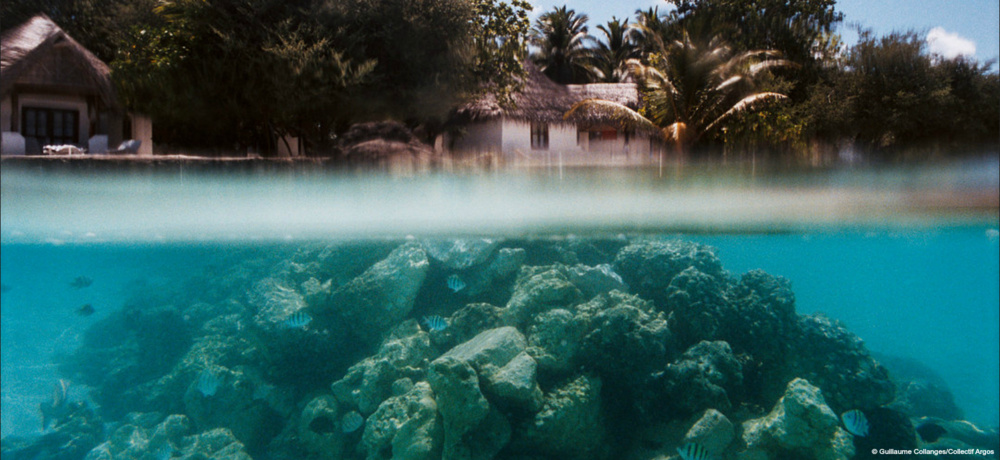
New Zealand High Court rejects Kiribati climate refugee appeal
Tuesday's rejection of Ioane Teitiota’s appeal at the High Court of New Zealand comes as little surprise. Teitiota and his lawyer, Michael Kidd, managed to capture the attention of the global media when they decided to appeal to the High Court to overturn a decision by immigration authorities to reject Teitiota’s asylum claim. His attempt to secure refugee status was based on the argument that returning to his home country of Kiribati constituted a threat to his family’s safety and that this threat was a result of climate change. In short, Teitiota was attempting to become the world’s first legally-recognised climate refugee.
Teitiota’s case was damaged by two factors. Firstly, his argument was undermined by the fact that he had resorted to an asylum claim as a result of exhausting legal avenues related to his (long-expired) visa status, as his lawyer admitted to the Australian media. Secondly, and most significantly, the international legal framework governing the criteria for asylum claims – the 1951 Convention and 1967 Protocol relating to the Status of Refugees – does not provide for asylum claims made on the basis of exposure to natural hazards or climate change (except in very specific circumstances). High court judge John Priestly also commented that “[Teitota’s] position does not appear to be different from that of any other Kiribati national” – pointing to the fact that establishing a legal case for persecution, in accordance with refugee law, is problematic in a context where there is no clear agent of persecution and the causes of displacement appear to be indiscriminate.
Whilst Kiribati often typifies the ‘sinking island’ narrative employed in climate change debates, Kidd referred more to the impacts of rapid-onset king tides and their effect on water, food security and physical safety of atoll communities to argue Teitiota’s case. Although Teitiota had been resident in New Zealand for six years prior to his claim and therefore not actually forced from his home by such hazards, the vulnerability he highlights finds accordance with the experiences of the millions displaced each year by climate- and weather-related disasters – numbering 31.7 million in 2012 alone. A patchy and incoherent protection framework exists to respond to the urgent protection and assistance needs of these displaced populations – they are literally left out in the cold. If they move across borders – or when other populations move for reasons related to slow-onset environmental impacts related to climate change – the legal situation becomes even more complex and the range of responses even less adequate.
The Teitiota case should force us to question whether refugee law provides an appropriate avenue to pursue protection. Many of Teitiota’s compatriots, in fact, outright reject the idea of becoming refugees – understandably preferring to ‘migrate with dignity’ and become productive, integrated members of their host communities. The 1951 Convention and 1967 Protocol, the basis of international refugee law, were hard-won achievements; even though they were borne in an atmosphere of unprecedented support for European victims of forced migration during World War II. At the same time, they simply weren’t established with this kind of displacement in mind, so opening them up to re-negotiation and amendment could jeopardise the existing protection mechanisms which millions of forced migrants depend on – especially in a world where immigration is a highly contentious topic throughout many high-income countries.
Whilst advocacy groups, policymakers and academics often use the word ‘refugee’ in the context of climate change almost all recognise that existing international refugee law is both an inadequate and inappropriate avenue to seek protection for those who have lost their homes and livelihoods to a changing climate. Teitota and Kidd believed that their case could establish legal precedent for millions of people around the world to seek protection from the deleterious impacts of climate change. But even if they had won the case, judicial precedence in New Zealand’s High Court is simply not enough. There is a systematic and dire lack of international frameworks to address the adaptation, disaster risk reduction, humanitarian assistance and legal protection needs of populations around the world who are first and worst affected by climate change.
The adequacy of legal frameworks to respond to displacement related to climate change is essentially dependent on their successful incorporation into broader mechanisms - which is to say that they must not be divorced from wider efforts to both control the causes of global environmental change and reduce the risks associated with its impacts. Expanding, simplifying and streamlining adaptation finance to vulnerable communities in the Global South is just the first step. What the current situation demands, especially with the 2015 deadline for a binding climate deal looming, is not only a renewed commitment to genuine mitigation and adaptation but a fresh appraisal of climate change which allows us to construct both global and local frameworks to prepare for and respond to its consequences from a human rights perspective.
The use of the word ‘refugee’ in the context of climate change not only points to these human rights impacts but also to the reality that a form of refugeehood – the experience, that is, of involuntarily leaving one’s home as a result of persecution – is an inherent feature of the historical distribution of responsibility for climate change. In the two decades 1990-2010, Kiribati emitted the equivalent of 0.0007% of the United States’ emissions during that same period. The use of the term ‘refugee’ allows us to make reference to the mixture of dispossession, responsibility and compensation which shouldbe at the heart of this debate. In short, it reminds us that this is a question of climate justice just as much as it is a question of responding to the legal, operational and geopolitical challenges resulting from the movement of people.
SIGN UP FOR OUR EMAILS AND STAY UP TO DATE WITH EJF